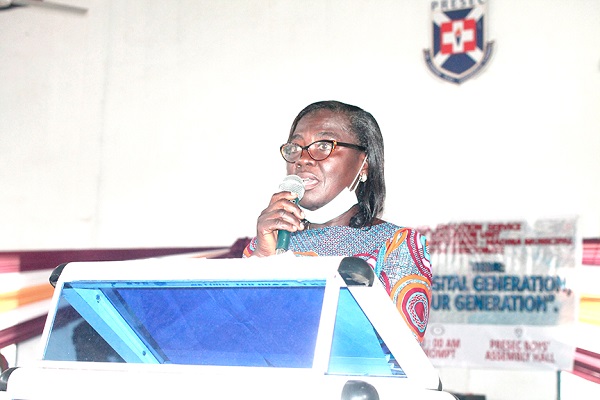
"Empower girls to overcome gender digital divide"
The La Nkwantanang Madina Municipal Assembly (LANMA) has marked this year's International Day for the Girl Child, with a call for pragmatic steps to empower girls with tools that will help to bridge the gender digital divide.
The LANMA Girl Child Education Coordinator, Mrs Juliana Awuah, who made that call, said developing the capacity of girls in the digital space would help to strategically position them to compete favourably on the global stage and guarantee them a brighter future.
She underscored the need for increased investments from all actors and stakeholders to close the gender digital divide access to devices, connectivity, skills and safety.
Mrs Awuah was speaking at the International Day of the Girl Child held in Accra.
The event was marked on the theme: "Digital generation; our generation."
International Day of the Girl Child began as part of the international, non-governmental organisation, Plan International’s campaign dubbed “Because I am a Girl.”
GEF
This year's celebration fell in line with the commemoration of the Generation Equality Forum (GEF) and the launch of a five-year commitment from civil society leaders, governments, corporations and change makers from around the world for bold gender equality impacts.
These initiatives have been rolled out in the midst of the COVID-19 pandemic.
Digital divide
Mrs Awuah stressed that it was important to widen the pathways so that the current generation of girls would unleash their potential regardless of their race, gender, language, ability, economic status and geographic origin.
She observed that although gender equity in digital literacy was a driver of economic growth, a competitive business, and national advantage, there was a yawning gap that needed to be bridged.
For instance, she indicated that the global internet user gender gap had grown from 11 per cent in 2013 to 17 per cent in 2019, with developed countries seeing 43 percentage growth.
Worrying development
However, she said it was worrying that 2.2 billion people below the age of 25 did not have internet access at home, with girls more likely to be cut off.
"Globally, the percentage of females among science technology engineering and mathematics (STEM) graduates is below 15 per cent in over two-thirds of countries. And in middle and higher income countries, only 14 per cent of girls, who were top performers in science or mathematics, were expected to work in science and engineering compared to 26 per cent of top-performing boys," she said.
Towards reversing the trend, she said it was important for pragmatic steps to be taken to tap into the power and diversity of adolescent girls as digital change-makers and designers of learning and other solutions to address the challenges and opportunities they face in the digital world.
Collaboration needed
For her part, the LANMA Director of Education, Ms Angela Frimpomaa Nkansah called on state and non-state actors to collaborate to empower female children to acquire digital skills that would make them relevant to the society.
